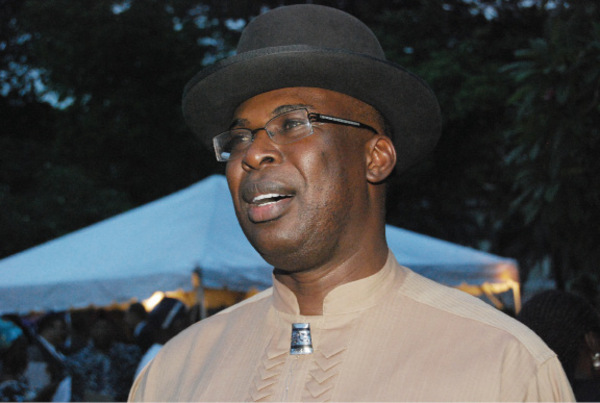Oil marketers refusing to cut prices of diesel, others — Minister
Despite the recent commencement of the deregulation of the downstream sector of the petroleum industry, the Minister of State for Petroleum Resources, Timipre Sylva, said the Federal Government will continue to intervene in determining the retail pump price of petrol.
The Minister said the continued intervention in the pricing process was the responsibility and duty the government owes Nigerians to protect and safeguard fuel consumers from exploitation by oil marketers.
Mr Sylva gave the clarification in his office in Abuja to explain why the government appears not to allow market forces to determine the fuel price at the pump since its latest effort at deregulation began on March 19.
He said the decision by the government to continue to intervene in determining fuel price was informed by the ugly experiences it was having with fuel marketers.
““Deregulation of the downstream sector of the petroleum industry was approved on the 19th of March. Since then, fuel prices have been reviewed twice. Yet, marketers deliberately refused to bring down the cost of diesel and other petroleum products whose landing costs had also reduced,” the minister said.
“Also, petrol and kerosene are strategic to the country. Therefore, we cannot allow their prices to be determined wholly by fuel marketers. Consumers had to be protected. This is what obtains globally.
“If we allow marketers to fix prices of these commodities anyhow they like, it will not augur well for us. That is why we will continue to intervene in price-fixing. In the recent price-fixing, we allowed the marketers to get some profit, but we determine the price to protect consumers by creating a price band.
“Look at our battle with marketers. We brought down the price of PMS, because the landing cost had come down. But, the marketers refused to bring down the prices of diesel and other deregulated commodities, even though their landing costs had come down also,” the Minister said.
He said if the Petroleum Products Pricing Regulatory Agency (PPPRA) does not continue to interface with the marketers in determining the prices of PMS, the oil marketers would fix the prices arbitrarily and exploit consumers.
The PPPRA, he said, would continue to work with the marketers to determine the fuel prices to ensure the best pricing is arrived at for the consumers.
In the event of such eventuality, he said the government was already in the race to provide a cheaper alternative to petrol, in the form of Compressed Natural Gas for cars.
No impact on food prices, others
Despite the reduction in the pump price of petrol, the Minister lamented that food prices and other commodities and services, like transportation, were yet to come down.
He called on Nigerians to hold market players accountable when the price of petrol begins to rise again.
“We have reduced fuel price, but the prices of commodities in the market are not going down. But, if fuel increases tomorrow, the marketers will increase the price of PMS, and the cost of these items would skyrocket,” he said.
LPG penetration
Mr Sylva said the Federal Government was considering kick-starting the Liquefied Petroleum Gas (LPG) penetration policy by June ending, maybe after the COVID-19 pandemic forced it to postpone the commencement twice, in April and May 2020.
On the LPG policy, he said the government was planning to set up 32,000 micro-distribution centres (MDC) for LPG, also known as cooking gas, across the country.
The facility would engage about 5,000 youths across the country, while the existing illegal roadside LPG dealers would also be inculcated in the programme, apart from encouraging more Nigerians to use LPG.
The Minister said the petroleum ministry had received approval from the Presidency to organize fresh oil licensing bid round to award some marginal oil licenses this year.
On the passage of the Petroleum Industry Bill (PIB), he said the Federal Government would conduct a major oil bid round, especially after issues surrounding the fiscal terms and other issues had been sorted out.
Work on the draft PIB, the Minister said, had been concluded, while the petroleum ministry was on the verge of presenting the bill to the President and the Federal Executive Council (FEC) for approval, before presenting the bill to the National Assembly.
Oil glut gradually clearing
The Group Managing Director of the Nigerian National Petroleum Corporation (NNPC, Mele Kyari, who also participated in the briefing, said there was a gradual easing of the crude oil glut at the international oil market.
Mr Kyari said the uncleared transactions were now being cleared to five ways for fresh transactions.
He said the government was committed to the rehabilitation of the Port Harcourt refineries, in line with the refineries rehabilitation programme.
However, he said work had stalled on the programme by the COVID-19 pandemic, as the corporation was unable to mobilize the manpower needed to undertake the rehabilitation




